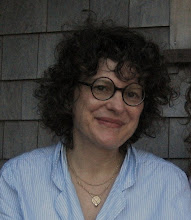 This---quite simply--- was a wonderful book. Elizabeth Strout is pretty consistently great. All the way from Amy and Isabel to these interwoven short stories. They're set in a small town in Maine. The stories are up there with anything by Alice Munro. The character thread throughout is Olive Kittredge who is a difficult, problematic character. You usually don't always experience her full on but out of the corner of your eye in a story of someone else where she pops up in the periphery. Some of her central story is only glimpsed in passing through someone else's story. The final story is Olive's though and it is a deserved ending for her which you are surprised at yourself for wanting so much.
This---quite simply--- was a wonderful book. Elizabeth Strout is pretty consistently great. All the way from Amy and Isabel to these interwoven short stories. They're set in a small town in Maine. The stories are up there with anything by Alice Munro. The character thread throughout is Olive Kittredge who is a difficult, problematic character. You usually don't always experience her full on but out of the corner of your eye in a story of someone else where she pops up in the periphery. Some of her central story is only glimpsed in passing through someone else's story. The final story is Olive's though and it is a deserved ending for her which you are surprised at yourself for wanting so much.Chalk up one for the Pulitzer people.




